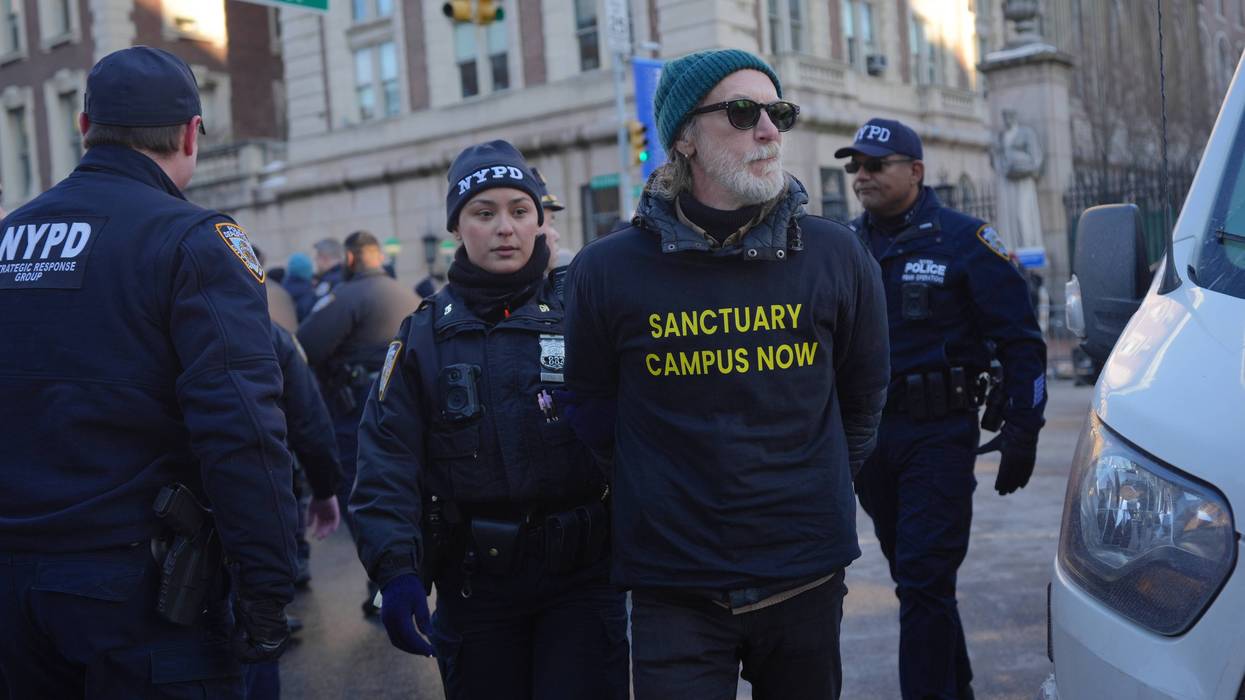March, 13 2019, 12:00am EDT

For Immediate Release
Contact:
Mike Stankiewicz, mstankiewicz@citizen.org, (202) 588-7779
David Rosen, drosen@citizen.org, (202) 588-7742
Federal Consumer Protection Enforcement Drops 37 Percent Under President 'Tough-on-Crime' Trump
Enforcement of protection laws at three agencies has fallen steeply under Trump, Public Citizen finds
WASHINGTON
Law enforcement activity at three large U.S. consumer protection agencies has fallen sharply under President Donald Trump - evidence that the White House continues to put corporate interests ahead of the middle class, Public Citizen said today.
A new Public Citizen report, "Consumer Carnage," examined enforcement activity at the U.S. Consumer Financial Protection Bureau (CFPB), Consumer Product Safety Commission (CPSC) and Federal Trade Commission (FTC) regarding cases that resulted in fines of $5,000 or more.
The analysis found that during Trump's first two years in office, these agencies completed a total of 84 enforcement cases combined, a 37 percent decline from 133 cases completed during President Barack Obama's last two years in office.
More specifically, Public Citizen found that enforcement activity against corporations:
- Sank by more than 50 percent at the CFPB once the Trump administration assumed control over the agency in late 2017. The CFPB completed 11 enforcement actions in 2018 under Trump-appointed leadership, compared with 24 the prior year, when the CFPB was led by an Obama-appointed official.
- Fell to only seven cases at the CPSC during Trump's first two years in office, compared with 13 cases in Obama's final two years.
"Members of the Trump administration have made abundantly clear they perceive their function as serving and assisting corporations instead of holding them accountable for lawbreaking," said Robert Weissman, president of Public Citizen. "Under this president, federal agencies have slashed fines, declined to bring cases against corporate wrongdoers and gutted enforcement programs. The result is a government that is eager to throw consumers under the bus."
The change at the CFPB has been especially egregious. Public Citizen found that under Trump, the CFPB has moved to terminate investigations, settled cases, lowered fines or imposed no fines at all in at least 10 instances. In one recent case, the CFPB fined a lender accused of swindling veterans out of their benefits just one dollar after the lender claimed he couldn't pay.
At the CPSC, two Democrats on the commission have written strong dissents to the agency's settlements in cases involving defective jogging strollers whose front wheels could detach suddenly during use (at least 50 children and 47 adults were injured) and trash cans whose back protective collars could become dislodged, exposing a sharp edge (at least 60 people have been injured). And the FTC has yet to sanction Facebook over potential violations of a 2011 FTC consent decree over privacy issues.
For the report, Public Citizen examined enforcement cases at the three agencies from 2015 through 2018 and used the Violation Tracker database compiled by the Corporate Research Project of Good Jobs First.
"Trump's appointees' apparent belief that enforcement of consumer protection laws should be a last resort represents a dramatic about-face from Trump's claim of populism during his campaign," said Alan Zibel, research director for Public Citizen's Corporate Presidency Project. "Trump, who once asserted that he was 'not going to let Wall Street get away with murder,' now is allowing industry after industry to get away with just about anything."
Read the report (PDF).
Public Citizen is a nonprofit consumer advocacy organization that champions the public interest in the halls of power. We defend democracy, resist corporate power and work to ensure that government works for the people - not for big corporations. Founded in 1971, we now have 500,000 members and supporters throughout the country.
(202) 588-1000LATEST NEWS
Detained Columbia Student Released by ICE After Mamdani-Trump Talk
In an Instagram post, student Ellie Aghayeva confirmed she was “safe and OK,” but “in complete shock.”
Feb 26, 2026
Update (4:25 pm ET):
Columbia University student Ellie Aghayeva was released from Immigration and Customs Enforcement custody Thursday afternoon after New York Mayor Zohran Mamdani expressed concerns about her detention in a meeting with President Donald Trump earlier in the day.
Mamdani shared the news on social media at 3:13 pm Eastern time.
“Just got off the phone with President Trump,” he wrote. “In our meeting earlier, I shared my concerns about Columbia student Elaina Aghayeva, who was detained by ICE this morning. He has just informed me that she will be released imminently.”
Aghayaeva then confirmed her release on her Instagram account, according to journalist Prem Thakker.
“I just got out a little while ago. I am safe and OK,” she wrote from an Uber on her way home.
“I am in complete shock over what happened and my phone is blowing up with calls from reporters,” she continued. “I need a little bit of time to process everything.”
Earlier:
This is a developing story... Please check back for possible updates...
Federal agents with the Department of Homeland Security abducted an international student with a visa from her apartment in a Columbia University-owned building in New York on Thursday, after lying to gain access to her home.
Acting university president Claire Shipman released a statement saying that around 6:30 am Eastern, the federal agents had "made misrepresentations to gain entry to the building to search for a 'missing person.'"
They then detained Ellie Aghayeva, a senior studying neuroscience and political science, according to a statement from her friends that was given to the American Association of University Professors.
Manhattan Borough President Brad Hoylman-Sigal, a Democrat, said in a statement that agents with Immigration and Customs Enforcement (ICE) had "used a phony missing persons bulletin for a 5-year-old girl."
"It is unconfirmed at this time whether they impersonated an officer to do so," Hoylman-Sigal told Prem Thakker of Zeteo News.
State Assemblymember Micah Lasher (D-69) told the New York Times that the ICE agents had presented themselves as police officers. A building superintendent let them in upon learning about the supposed missing child and led them to Aghayeva's apartment.
According to the ACLU: "ICE agents should not be falsely impersonating another government official or claiming they have a different governmental purpose to gain your permission to come into your home. A person’s 'consent' under these circumstances is not valid. ICE’s resulting entry in the home and any arrests they conduct violate the Fourth Amendment of the US Constitution."
After being arrested, Aghayeva managed to post a one-second Instagram video to her 105,000 followers with the message, "DHS illegally arrested me. Please help."
Protests erupted on Columbia's campus as news of Aghayeva's abduction spread.
Protest outside Columbia going on right now after ICE abducted a student on campus early this morning.@JumaaneWilliams and @bradhoylman are here. pic.twitter.com/0fARmHEBvJ
— Timmy Facciola (@TimmyFacciola_) February 26, 2026
Court records showed that a lawyer for Aghayeva had filed an emergency petition requesting her release.
Shipman noted in her statement that all law enforcement officers "must have a judicial warrant or judicial subpoena to access nonpublic areas of the university, including housing, classrooms, and areas requiring [Columbia University ID] swipe access. An administrative warrant is not sufficient."
Last month, a leaked internal ICE memo revealed that acting Director Todd Lyons had given agents broader authority to carry out warrantless arrests. Last May, Lyons issued guidance saying agents needed only an administrative warrant, not a judicial one, to enter a home.
A coalition of advocacy groups sued the Trump administration this week over warrantless immigration arrests in North Carolina.
New York Gov. Kathy Hochul, a Democrat, said Thursdauy that ICE agents clearly "didn't have the proper warrant, so they lied to gain access to a student’s private residence."
US Rep. Adriano Espaillat (D-NY) said the latest "exhibit of the Trump administration’s lawless actions—which are rarely supported by legitimate warrants or subpoenas—is yet another reminder that Columbia University and other institutions must enhance the protections and policies they utilize to create a safe environment for those they serve and employ."
"Students and faculty should not fear for their safety in their dorm rooms, the classroom, or anywhere else on campus," said Espaillat.
Columbia students including Mahmoud Khalil and Mohsen Mahdawi were been detained last year by immigration agents under the Trump administration; Mahdawi had asked Columbia officials to move him to a safe location prior to his arrest, but his lawyer told The Intercept that university had told him it was unable to move him to housing where he would be protected.
As Common Dreams reported earlier this month, federal immigration agents have increasingly used deceptive tactics to carry out arrests and raids in places like Minneapolis, where thousands of agents were surged in recent months
"Yet again, ICE is using blatantly illegal trickery to circumvent judicial warrant requirements and abduct a student," said former New York City Comptroller Brad Lander, now a candidate for the US House in the state's 10th District. "These are the tactics of brownshirts. That’s why I’ve long been calling to abolish ICE. And why Congress should not grant them one more penny."
"This lawlessness has to end. Ellie Aghayeva must be safely released. And Dylan Contreras," said Lander, referring to a Bronx high school student who was detained last year. "And too many other students whose names we don’t even know."
Keep ReadingShow Less
'Batshit Authoritarianism': Trump Allies Drafting Order to Give Him 'Extraordinary Power Over Voting'
“This is a plot to interfere with the will of voters and undermine both the rule of law and public confidence in our elections," said Sen. Mark Warner.
Feb 26, 2026
A group of right-wing activists is crafting an executive order that would let President Donald Trump unilaterally ban mail-in ballots and voting machines ahead of the 2026 midterm elections.
The Washington Post reported on Thursday that the order being drafted by Trump allies would give him "extraordinary power over voting," even though the US Constitution explicitly gives individual states the powers to run their own elections.
An advocate for the order, Florida attorney Peter Ticktin, acknowledged in an interview with the Post that the Constitution does not give the president any role in shaping elections, but he said Trump needed to act to prevent China from supposedly interfering with American elections.
"Under the Constitution, it’s the legislatures and states that really control how a state conducts its elections, and the president doesn’t have any power to do that,” Ticktin said. "But here we have a situation where the president is aware that there are foreign interests that are interfering in our election processes. That causes a national emergency where the president has to be able to deal with it."
The activists drafting the emergency order said that they are working in coordination with the White House, although the extent of any cooperation isn't clear.
However, the Post pointed to some evidence that the White House really is on board with such a strategy, such as the Trump administration's efforts to investigate his 2020 election loss to former President Joe Biden, which the president has long baselessly claimed was due to foreign interference from a number of nations, including China and Venezuela.
As the Post noted, "a 2021 intelligence review concluded that China considered efforts to influence the election but did not go through with them."
Additionally, Trump has publicly stated numerous times that he wants to completely do away with mail-in ballots and voting machines, both of which he has baselessly claimed are riddled with fraud.
Sen. Mark Warner (D-Va.), the ranking member of the Senate Intelligence Committee, said that the draft order was simply an attempt by the president's allies to block democratic accountability in future elections.
"We've been raising the alarm for weeks about President Trump’s attacks on our elections and now we’re seeing reports that outline how they may be planning to do it,” Warner told the Post. “This is a plot to interfere with the will of voters and undermine both the rule of law and public confidence in our elections."
Government watchdog Citizens for Responsibility and Ethics in Washington (CREW) said that the drafted order was plainly unconstitutional and would fail in court.
"The Constitution gives states power over election law with oversight from Congress," CREW wrote in a social media post. "Notice who's missing? The president. Trump may try to cook up a sham national emergency to try to seize control of elections but it won't stand up to scrutiny."
MS NOW national security contributor Marc Polymeropoulos called the draft order "batshit authoritarianism" and cautioned that "this crazy shit is possible as Trump knows Congress is all but lost at this point in a free election."
"To save himself," Polymeropoulos added, "anything is possible."
Democratic Illinois Gov. JB Pritzker pointed to the Post report and warned, "Donald Trump’s plan to steal the 2026 midterm elections is already underway."
Rep. Rosa De Lauro (D-Conn.) accused Trump of "setting the stage to steal the midterm elections and set fire to our democracy," while vowing that Democrats would "fight for our democracy and safeguard the right to vote."
Keep ReadingShow Less
GOP Moves to Fast-Track 'Dangerous' Assault on Treasured National Monument in Utah
"This wild landscape is quintessential southern Utah redrock country with its stunning geology, irreplaceable cultural resources, unique fossils, and wide-open spaces. All of that is at risk if this attack succeeds."
Feb 26, 2026
Republican US Sen. Mike Lee, a leading proponent of selling off the country's public lands, moved Wednesday to begin the process expediting an attack on the Grand Staircase-Escalante National Monument in his home state of Utah, drawing outrage from conservationists who vowed to pull out all the stops to protect the national treasure.
Lee kick-started the process by entering a recent Government Accountability Office (GAO) opinion into the congressional record. Last month, the GAO determined that a Biden-era management plan aimed at shielding Grand Staircase-Escalante constitutes a rule under the Congressional Review Act (CRA), which gives lawmakers a limited time to undo federal rules after they are finalized.
In the coming days, Lee and his allies are expected to introduce a resolution of disapproval under the CRA in an effort to roll back the monument management plan. CRA resolutions are privileged and not subject to the Senate's 60-vote filibuster, meaning Republicans could pass the measure without any Democratic support.
Rep. Celeste Maloy (R-Utah), who requested the GAO opinion, is leading the House effort to repeal the Grand Staircase-Escalante management plan.
Tom Delehanty, senior attorney with Earthjustice’s Rocky Mountain office, said in a statement Thursday that "the fate of our public lands, including our precious national monuments, should not be left to a handful of politicians who want to turn them over to industry."
"While this may be the first CRA attack on a national monument, it will not be the last if members of Congress on both sides of the aisle don’t stand up to oppose it," Delehanty warned. "Sen. Lee’s use of this arcane law would throw out years of planning by local officials, Tribes, and communities, setting a dangerous precedent on public land protection. Anyone who values our public lands and national monuments should take note.”
The legal director of the Southern Utah Wilderness Alliance, Steve Bloch, said the GOP's escalating attack on Grand Staircase-Escalante "is a call to action for Americans from across the nation."
"This wild landscape is quintessential southern Utah redrock country with its stunning geology, irreplaceable cultural resources, unique fossils, and wide-open spaces," said Bloch. "All of that is at risk if this attack succeeds and the monument management plan is undone. We intend to move heaven and earth to stop that from happening.”
During his first term in the White House, President Donald Trump launched a massive assault on Grand Staircase-Escalante, shrinking it by nearly 50%—a move that former President Joe Biden reversed.
But the Washington Post reported last year that the Trump administration has considered assailing the national monument yet again as part of a broader push to open the nation's public lands to commercial activity and industry exploitation.
Dan Ritzman, Sierra Club’s director of conservation, said Thursday that congressional Republicans' use of the CRA to gut protections for Grand Staircase-Escalante is "unprecedented" and "unlawful."
"Grand Staircase-Escalante National Monument is one of this country’s most treasured public landscapes, and the public has been involved from advocating for its protection to organizing its long-term management," said Ritzman. "Overturning this plan erases years of public engagement and Tribal consultation, and threatens certainty for everyone who uses and enjoys this iconic landscape.”
Keep ReadingShow Less
Most Popular


